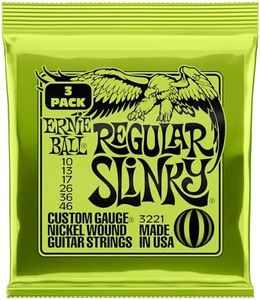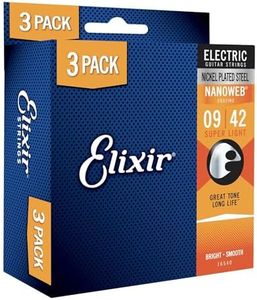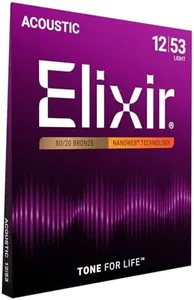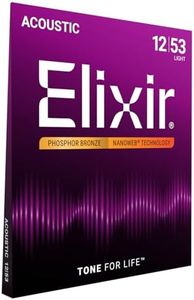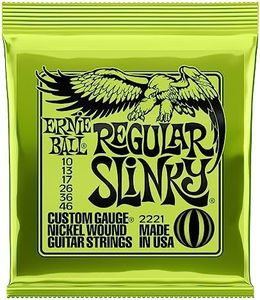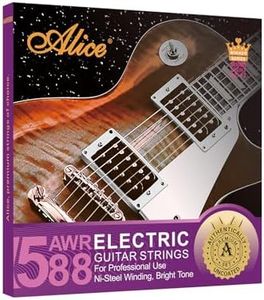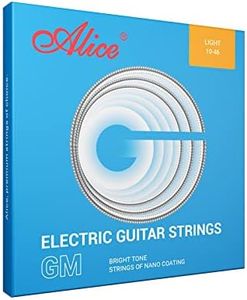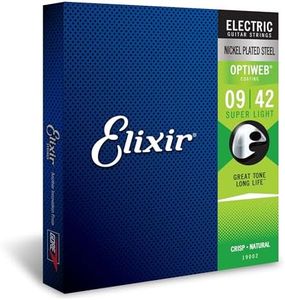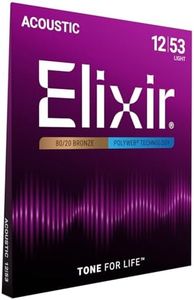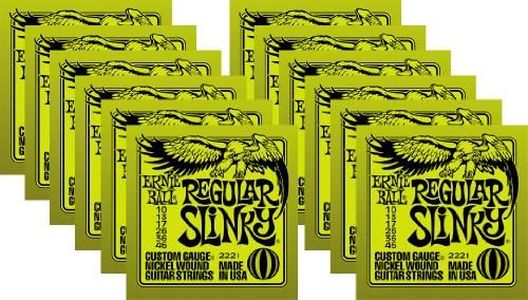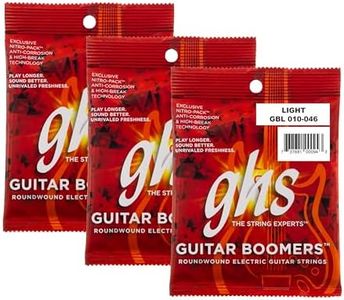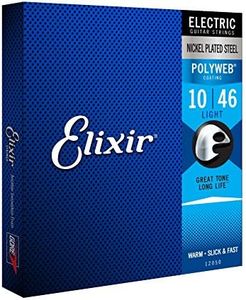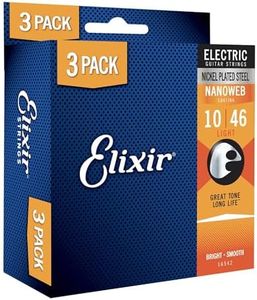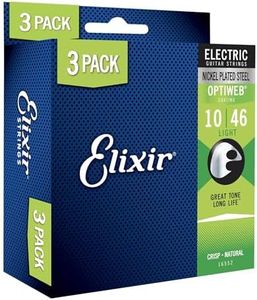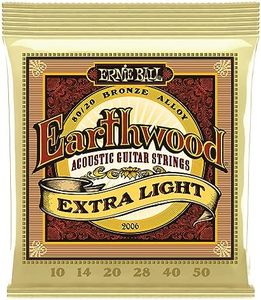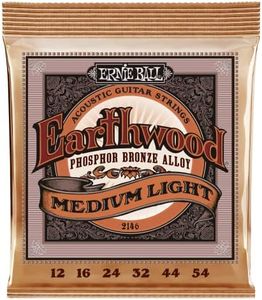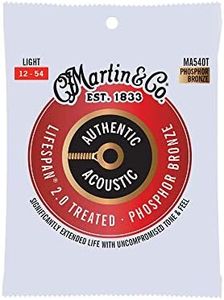10 Best Guitar Strings 2026 in the United States
Our technology thoroughly searches through the online shopping world, reviewing hundreds of sites. We then process and analyze this information, updating in real-time to bring you the latest top-rated products. This way, you always get the best and most current options available.

Our Top Picks
Winner
Ernie Ball Regular Slinky Nickel Wound Electric Guitar Strings 3-pack, 10-46 Gauge (P03221)
Most important from
124952 reviews
Ernie Ball Regular Slinky Electric Guitar Strings (10-46 gauge) are a popular choice for electric guitar players looking for a bright, balanced tone. Made with nickel material, these strings provide a classic sound that suits many music styles, from rock to blues. The 10-46 gauge is considered a standard size, offering a nice balance between playability and tone, making them a great fit for beginners and seasoned players alike. Each set comes individually wrapped with Element Shield Packaging, which helps keep the strings fresh and extends their life by protecting them from corrosion. These strings use a nickel wound design, which is common for electric guitars and contributes to their bright sound and durability.
Highly praised by users for consistency and reliability, Ernie Ball Regular Slinkys offer a dependable choice for a wide range of electric guitar players. While nickel strings offer a bright tone, players who prefer a warmer or more vintage sound might look for alternatives like pure steel or coated strings. Additionally, these strings do not have a special coating, so they may wear out faster than coated strings if you sweat a lot or play in humid conditions. Overall, they provide classic tone and feel with trusted quality and packaging that helps them last longer.
Most important from
124952 reviews
Elixir Strings Electric Guitar Strings with NANOWEB Coating, 3 Pack, Super Light .009-.042 (16540)
Most important from
18861 reviews
The Elixir Strings Electric Guitar Strings with NANOWEB Coating in the Super Light .009-.042 gauge offer several notable strengths. The nickel-plated steel material combined with the NANOWEB coating is designed to retain tone longer compared to other strings, which is a significant advantage for performance and practice. The Super Light gauge makes them easier to play, especially for beginners or those who prefer a lighter touch.
The anti-rust plated plain steel strings also ensure a longer lifespan by resisting corrosion, which adds value by reducing the frequency of string changes. Additionally, the inclusion of three sets for the price of two is a great deal for budget-conscious musicians. However, some may find the Super Light gauge to lack the fullness in tone that heavier gauges provide, which might not suit all playing styles, particularly those requiring more robust and resonant sounds.
Ideal for electric guitar players who prioritize longevity and ease of play, these strings are especially beneficial for those aiming to reduce the hassle of frequent string changes.
Most important from
18861 reviews
Elixir Strings - Acoustic 80/20 Bronze with NANOWEB Coating - Light Guitar Strings (.012-.053)
Most important from
37819 reviews
Elixir Strings Acoustic Guitar Strings offer a solid option for players looking for bright and focused tones. Made from 80/20 bronze wrapped wire, these strings feature a NANOWEB coating that not only enhances their sound but also provides a smooth and comfortable feel when playing. One of the standout features is their corrosion resistance, which helps protect the strings from sweat, humidity, and rust, allowing them to maintain their fresh tone longer than many other strings on the market. This is particularly beneficial for regular players who want to avoid frequent string changes.
The light gauge (12-53) makes these strings suitable for a variety of playing styles, from strumming to fingerpicking. However, there are some drawbacks to consider. The coated nature of these strings can sometimes result in a slightly different feel compared to uncoated options, which may not be preferred by everyone. Additionally, while the NANOWEB coating extends their lifespan, some players might find the initial sound a bit less vibrant than traditional uncoated strings until they break in.
Elixir Strings are well-suited for acoustic guitarists who prioritize durability and consistent performance. They may be especially appealing to those who play frequently or are looking for low-maintenance options.
